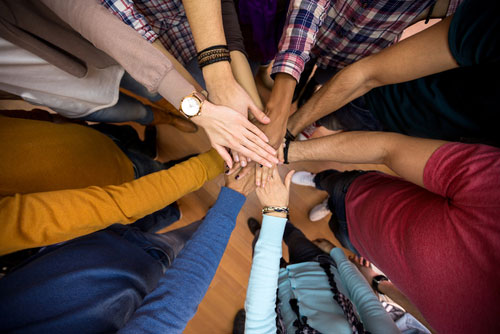Sustainability, what else? We are living in times of change (haven’t we always?) where the choices we make can completely change the direction in which we are heading. IPCC scientists said, by the end of 2018, that we only had 12 years to limit climate change catastrophes. Meantime, Oxfam said in January 2019 the 26 richest people on the planet have as much wealth as the poorest half of the population. WWF announced we have lost 60% of the world’s biodiversity since 1980. What do CEO’s, managers, millennials, and politicians think about all this? How important is a sustainable world?
Let’s remind ourselves what sustainability means, as nowadays it seems to have endless (and not always correct) meanings. The concept is tightly connected to sustainable development; but while the first aims prevent the decrease in life quality, the second wants to improve overall life quality and guarantee it will exist with the same (or better) quality in the future. For this, we need an economic system that works properly while protecting the environment and improving all people’s lives.
For some time we, as people and as nations, have focused on making profits and shareholders have been the most important stakeholders. But times are changing. Societal pressure, along with a higher consciousness in both business and politics, is slowly starting to change the rules of the game. Let’s take a look at the opinion of some of the most influential actors in different areas and see why the path is long and there seems to be hope.
On The Business Side, Investors And CEOs Are Thinking About Sustainability

Investors are increasingly recognizing that environmental, social, and governance (ESG) factors are key drivers of successful investments, according to a McKinsey study.
The living proof of this phenomenon is Larry Fink, CEO of one of the world’s largest investment management corporations, BlackRock. He has been continually reminding CEOs, through his annual letters, about how the importance of sustainability. In his 2019’s letter, Fink invited company leaders to take a more active leadership role in dealing with societal matters. He also warned CEOs how profits are closely linked to purpose and that businesses need to find and communicate their purpose to successfully engage with the new generation of consumers.
At the same time, CEOs seem to be paying attention. In the U.S, despite Trump’s decision to quit the Paris Agreement, many American companies are still working to fight climate change. After the last COP in Katowice, Poland, 17 companies, including Microsoft, Unilever and Danone, have signed a statement acknowledging the decisions reached. Companies are clearly showing that despite all the difficulties, they will do their own part to help transition to a more sustainable and carbon-neutral economy.
- Related:
What About Consumers?

A recent survey from Accenture shows consumers are truly paying attention to how companies position themselves regarding social and environmental issues. If there is not a direct link between the company’s and consumer’s purposes, 42% of consumers will likely step away from the brand. A Trends Report study also affirmed that consumers are asking how companies are contributing and creating value to the communities where they operate and helping solve some of the world’s biggest problems.
Of course, for this assessment to happen consumers need to be aware of what companies are doing. Perhaps that is why a recent Stackla Report says 86% of consumers consider a brand’s authenticity fundamental in their purchasing decisions. This figure rises up to 90% if we just consider millennials. In addition, 20% of consumers will stop following brands they do not consider to be genuine, according to the same source. But what are consumers expecting from brands after all?
According to an article from Forbes, baby boomers (around 55-75 years old) find companies working on plastic reduction more appealing. On the other hand, Gen Z and Millenials (both under 30 years old) particularly like companies that subscribe to larger purposes like human rights or LGBTQ equality.
According to a Label Insight Transparency ROI Study, we can say that companies that are open, communicate their business goals, performance, and operations across the value chain, and show their vulnerability, create a higher trust, increase brand loyalty and leave consumers more willing to pay higher prices. Consumers are starting to get worried about all the issues that have to do with sustainable development and are expecting companies to do the same.
- Related:
Everyone Is Agreeing On Living More Sustainably

Perhaps things are not moving as fast as desired, but progress is slowly happening. People are becoming more and more willing to embrace sustainability in their daily lives. There is no doubt we need to adopt policies, practices, and behaviors that contribute to reducing GHG emissions and slow down climate change events however we can.
However, there are some world leaders, like Trump or Brazil’s Bolsonaro, whose policies favor profit and short-term gains, by neglecting their environmental responsibility. Despite these less conscious leaders, others like Justin Trudeau (Canada) or Jacinda Ardern (New Zealand) are standing up for the importance of adopting policies that allow the transition to a greener economy where GDP also includes environment and social well-being metrics.
What about you? Are you now aware that everyone agrees that sustainability is the next step? Will you embrace this latest trend and start living a more sustainable lifestyle when it comes to food, clothes, and transportation? Are you ready to start making conscious consumer decisions? Don’t forget to convince others, too!
- Related:
Image credits to businessman on Shutterstock, crowd on Shutterstock, sustainable lifestyle on Shutterstock and hands together on Shutterstock
